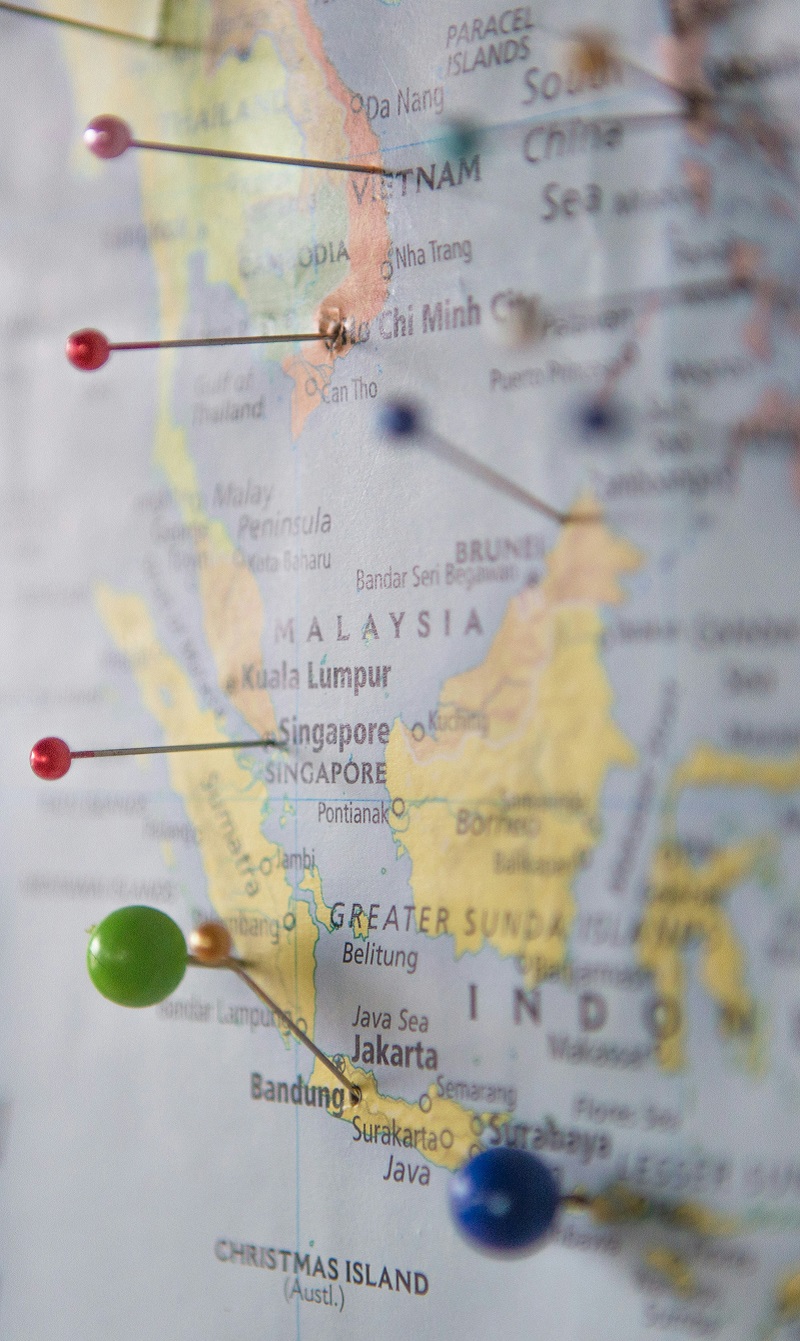Leadership for Transformation
Ensuring the digital economy drives shared prosperity for all Malaysians is no mean feat. Dr Sumitra Nair, senior vice president of Strategy and Policy at Malaysia Digital Economy Corporation, writes on how they take the lead on continuing action and turnaround. This article was first published in In Focus issue 10 magazine.
Malaysia Digital Economy Corporation (MDEC) is tasked with organising and leading Malaysia’s Digital Economy forward. For the last 25 years, the organisation has led the ICT and digital economy growth in Malaysia in order to create a regional digital powerhouse launching global champions to lead the 4IR. The experience of navigating these tumultuous times has been a steep learning curve for MDEC.
Future Reality Now
The future is indeed digital. It’s important that we first establish the notion that the economy of today is digital. Every aspect of economic growth and future development is bound to digital technology. COVID-19 has further accelerated the need for digital adoption, and we’re looking at permanent shifts in consumer needs and behaviours.
According to Google’s SEA e-Conomy Report 2021, Malaysia has seen a whopping three million new digital consumers since the start of the pandemic in 2020. 81 per cent of all internet users in Malaysia now consume digital services. This led to a permanent shift in digital adoption, as 94 per cent of pandemic consumers are still using the services today with 98 per cent intend to continue going forward.
It is therefore crucial for businesses, especially SMEs and MSMEs, to onboard onto digital. I believe that economic recovery, stability and sustainability depends on a digital economy ecosystem that is all-encompassing, bolstered by support from industry, corporates, individuals and government.
Leadership Amid Digital Transformation
Working for an agency that serves a national agenda also means that I have to cultivate a strong sense of serving the nation – serving the nation is indeed one of the key values of MDEC. I do this by encouraging the team to frame their ideas and work in ways that enable us to serve the nation better.
I take note of the personal nuances to the leadership role, referencing my own style and ability as a point of illustration: my style includes empowering the team while providing a listening ear for teams to share their concerns or challenges openly. I encourage teams to collaborate across the organisation, to ensure that we’re all pulling in the same direction to achieve the organisation’s goals. Last but not least, I emphasise transparency, integrity and honesty as these values make life and work much easier, more straightforward and productive for everyone.
The importance of a people strategy to ensure reliable, loyal, engaged employees in ensuring financial stability, should be acknowledged. One of MDEC’s core values is serving the nation, hence, this is something emphasised across the organisation. In fact, this is something we usually look out for when on-boarding new hires. Throughout my tenure here, we tend to attract and retain people who have a strong inclination to national service.
In my personal view, this is the most important factor in creating a reliable and loyal workforce for an organisation like MDEC. The culture in the company is driven by corporate values that speak about being go-getters, forward-thinkers, collaborators and the importance of having fun. This year, we kicked off a campaign called Selari (aligned) to re-enforce our core values, to ensure that we are of one heart, mind and vision – that we’re aligned with the same values, goals and dreams.
We also emphasise emotional, mental and physical well-being by providing employees with a wide range of opportunities in these areas such as via sports activities and social events. In addition to the above, MDEC supports a growth mindset by encouraging employees to commit to continuous learning. For example, every employee in MDEC is given access to a paid subscription to an online learning platform and learning is part of every employee’s KPI. This supports our employees in their professional development.
Digital Ambitions and ESG Goals
MDEC’s ESG work is twofold: from within and then also externally through work with other companies and organisations. First, we’re driving greater awareness and adoption of ESG principles and practices internally within the organisation. One of our key efforts this year is to conduct a Materiality Assessment to establish our baseline and to guide our future ESG strategy, targets and reporting.
Second, we’re advocating the adoption of ESG principles across the nation’s rapidly developing digital economy ecosystem. For a start, we’ll be looking to work with like-minded partners from the digital tech industry to commit to concrete actions to support the nation’s aspiration to reduce our national carbon emissions intensity by 45 per cent by the year 2030.
Majority of MDEC’s initiatives are aligned with UN’s SDGs. In 2019 and 2020 alone, over 95 per cent were linked to four key SDGs – SDG4 Quality Education, SDG8 Decent Work and Economic Growth, SDG9 Industry, Innovation and Infrastructure and SDG10 Reduced Inequalities. We’re committed to advancing a more inclusive and sustainable digital economy for our nation and recognises the increasing role that ESG will play in ensuring its future growth. In response to the increasing interest and demand from our stakeholders and clients we intend to do more.
In this regard, MDEC has established a new ESG and sustainability team, which will further emphasise the integration of ESG-friendly practices into our organisation as well as digital economy-related sectors.
Projects and Initiatives
The Malaysia Digital Economy Blueprint (MyDIGITAL) targets 875,000 MSMEs to adopt e-commerce. Thanks to the efforts of the Malaysian government, and ecosystem partners, as at the third quarter of last year, more than 725,000 MSMEs have already onboarded to e-commerce platforms in Malaysia.
According to the Department of Statistics Malaysia, Malaysia’s e-commerce income surged to RM896 billion from RM675 billion in 2019, growing at the rate of 32 per cent. In 2021, Malaysia’s income on e-commerce surpassed the RM1 trillion mark for the first time. The aspiration is that by 2025, Malaysia’s eCommerce market size will grow to RM1.65 trillion, propelled by the whole-of-nation approach of the National E-commerce Strategic Roadmap.
The Go-eCommerce Onboarding and Shop Malaysia Online initiatives run by MDEC played a key role in onboarding businesses to e-commerce and e-payment platforms. As of December 2021, the campaigns successfully benefitted more than 886,434 businesses, generating well over 153 million transactions with a gross merchandise value (GMV) worth over RM7.71 billion. The initiatives also successfully benefitted 279,898 women entrepreneurs in 2021.
For the benefit of entrepreneurs and enterprises, there are various MDEC programmes such as eUsahawan, SME Digital Accelerator programme, Smart Automation Grant, 4IR Catalyst Grant, Global Acceleration and Innovation Network programme. The latter won the Startup Ecosystem Award in the Public Sector at the 2021 World Information Technology and Services Alliance Global ICT Excellence Awards.
Future plans
In early 2022, MDEC announced Malaysia Digital, which will drive more catalytic programmes and initiatives that will serve to create substantial digital economic spill-over through equitable access to digital tools, knowledge and income opportunities. It will also serve to increase Malaysia’s value proposition as ASEAN’s hub for digital investments.
This begins with the introduction of the DE Rantau and Malaysia Digital Trade programmes. With DE Rantau, startups can embrace digital nomads as part of their workforce, promoting digital professional mobility among their employees while allowing them to attract foreign digital professionals.
Malaysia Digital Trade is a catalytic programme to capitalise on the opportunities in digitalisation accelerated by COVID-19. This initiative will drive interoperability and greater harmonisation of standards and regulatory approaches as well as facilitate trade within and across borders. By creating a thriving and healthy digital economy ecosystem that covers digital skills, digital adoption, startup catalysation and digital investments, MDEC can create a stable digital economy that can overcome global disruptions.





